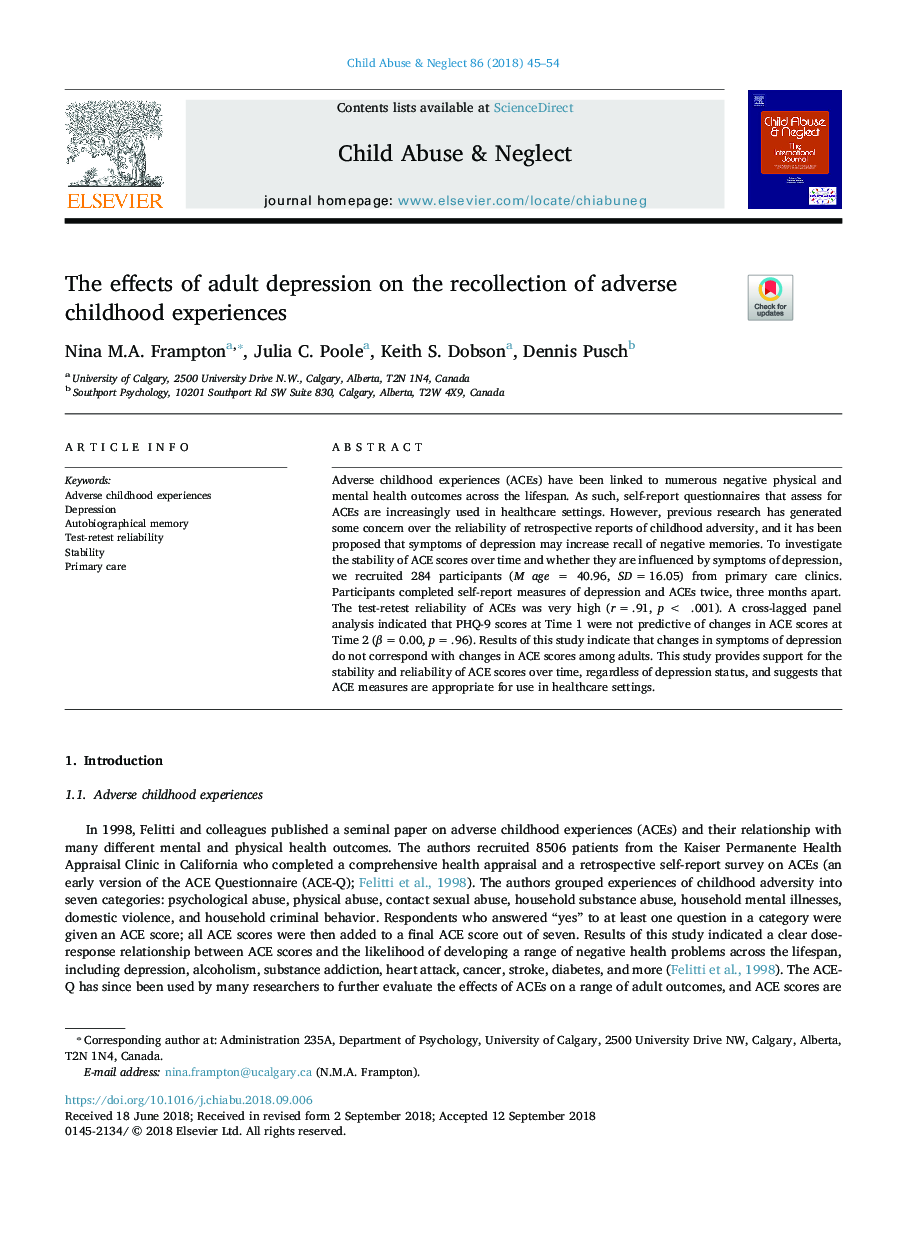| Article ID | Journal | Published Year | Pages | File Type |
|---|---|---|---|---|
| 11024058 | Child Abuse & Neglect | 2018 | 10 Pages |
Abstract
Adverse childhood experiences (ACEs) have been linked to numerous negative physical and mental health outcomes across the lifespan. As such, self-report questionnaires that assess for ACEs are increasingly used in healthcare settings. However, previous research has generated some concern over the reliability of retrospective reports of childhood adversity, and it has been proposed that symptoms of depression may increase recall of negative memories. To investigate the stability of ACE scores over time and whether they are influenced by symptoms of depression, we recruited 284 participants (M age = 40.96, SDâ=â16.05) from primary care clinics. Participants completed self-report measures of depression and ACEs twice, three months apart. The test-retest reliability of ACEs was very high (râ=â.91, pâ<â .001). A cross-lagged panel analysis indicated that PHQ-9 scores at Time 1 were not predictive of changes in ACE scores at Time 2 (βâ=â0.00, pâ=â.96). Results of this study indicate that changes in symptoms of depression do not correspond with changes in ACE scores among adults. This study provides support for the stability and reliability of ACE scores over time, regardless of depression status, and suggests that ACE measures are appropriate for use in healthcare settings.
Keywords
Related Topics
Health Sciences
Medicine and Dentistry
Perinatology, Pediatrics and Child Health
Authors
Nina M.A. Frampton, Julia C. Poole, Keith S. Dobson, Dennis Pusch,
